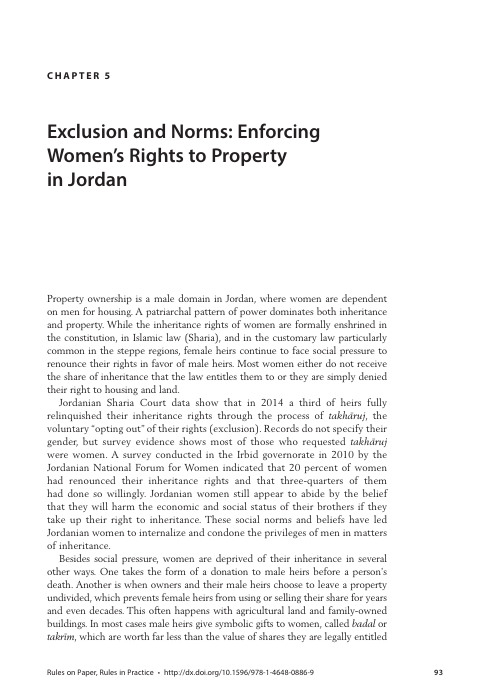Resource information
Property ownership is a male domain in Jordan, where women are dependent on men for housing. A patriarchal pattern of power dominates both inheritance and property. While the inheritance rights of women are formally enshrined in the constitution, in Islamic law (Sharia), and in the customary law particularly common in the steppe regions, female heirs continue to face social pressure to renounce their rights in favor of male heirs. Most women either do not receive the share of inheritance that the law entitles them to or they are simply denied their right to housing and land. Jordanian Sharia Court data show that in 2014 a third of heirs fully relinquished their inheritance rights through the process of takha¯ruj, the voluntary “opting out” of their rights (exclusion). Records do not specify their gender, but survey evidence shows most of those who requested takha¯ruj were women. A survey conducted in the Irbid governorate in 2010 by the Jordanian National Forum for Women indicated that 20 percent of women had renounced their inheritance rights and that three-quarters of them had done so willingly. Jordanian women still appear to abide by the belief that they will harm the economic and social status of their brothers if they take up their right to inheritance. These social norms and beliefs have led Jordanian women to internalize and condone the privileges of men in matters of inheritance.


